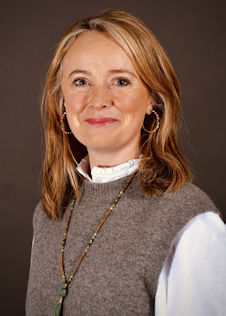Dr Claire Smith
Director of Postgraduate Research and Senior Lecturer
Visit Dr Claire Smith's profile on the York Research Database to:
- See a full list of publications
- Browse activities and projects
- Explore connections, collaborators, related work and more
Profile
Biography
Claire's research interests lie in the comparative politics of conflict management, international intervention and peacebuilding in the context of democratic transition - especially in Southeast Asia. Her main focus is on the politics of illiberal peacebuilding and post-war governance in contested states, as well as understanding ethno-religious violence and mass atrocities. Her geographical expertise is Southeast Asia, in particular Indonesia and Myanmar. She has been working in the region since 1997, with professional research experience in Indonesia, Myanmar, Timor-Leste, Cambodia and Lao PDR.
Claire co-founded and co-convened the GCRF Strategic Network on ‘Comparative Peacebuilding in Asia’, with co-funding from the Asia Foundation and the ISRF. This international network was co-led by scholars from LSE, ANU, and Gadja Mada University, and partnered with scholars and practitioners from South and Southeast Asia, including NUS, NTU, University of Colombo, University of Yangon, and Prince of Songkla University. The network supported novel, policy-relevant and interdisciplinary research on liberal and illiberal transitions from ethnic conflict and authoritarianism, and included guided field visits in Sri Lanka, Myanmar and Indonesia.
Claire’s research also covers the political impacts of and responses to mass atrocities in illiberal contexts, in collaboration with the Norwegian Centre for Holocaust and Minority Studies; and on the enduring legacies of illiberal peacebuilding in Southeast Asia, with collaborators at Umeå University, Sweden. Claire’s research has appeared in leading conflict and peace journals such as Conflict, Security and Development, Third World Quarterly, Global Responsibility to Protect and Peacebuilding. Her research has been funded by the ESRC, The Asia Foundation, and The World Peace Foundation.
Claire’s latest project, Pathways to Peace for Myanmar, maps the potential for domestic, regional and international pathways to peace for the escalating conflict in Myanmar. This impact-focused project aims to inform and engage with UK based policymakers and stakeholders working on Myanmar by producing policy-focused and accessible research outputs, including background papers, podcasts and summary posters.
Career
Before she joined York in 2011, Claire was a Teaching Fellow at LSE and SOAS, University of London. She has also held Visiting Fellowship at the LSE and the University of Indonesia. Claire has a PhD in Development Studies from LSE (2009), an MA in International Affairs from Columbia University (2001) and a BA Hons in Politics, Philosophy and Economics from Balliol College, Oxford University (1997).
Research
Overview
Claire’s current research focuses on the political impacts of and resistance to mass atrocities in illiberal and newly democratising contexts, and the enduring legacies and trajectories of illiberal peacebuilding in Southeast Asia. Around these themes, she is working on three main projects.
1. Minority resistance and responses to mass atrocities
In collaboration with colleagues at the Norwegian Centre for Holocaust and Minority Studies (Dr Ellen Stensrud), and the University of York (Dr Gyda Sindre), this project explores how past and present mass atrocities and genocides impact contemporary politics. In particular, the project examines how minority groups resist and respond to escalations in mass violence, with a focus on cases from Southeast Asia and the Balkans. The research group received seed-funding from the University of York for a conference panel and workshop held in connection with the 14th Conference of the International Association for Genocide Scholars held in Cambodia in July 2019. The panel and subsequent workshop laid the foundation for ongoing collaborative research and activities on this topic.
2. Trajectories of illiberal peace: continuity, change, collapse
This project explores the comparative trajectories of illiberal peacebuilding in Southeast Asia, with collaborators at Umeå, Essex and Newcastle Universities. The project seeks to build an international, multidisciplinary research environment to examine the outcomes, sustainability, and evolution of illiberal peacebuilding over time. In pursuit of this overarching aim, the project explores the following research questions: (1) How is illiberal peacebuilding practiced, sustained, and resisted, and by whom, (2) How and under what conditions does illiberal peacebuilding successfully maintain stability and prevent a return to violent conflict, and when does it fail to do so, (3) How and under what conditions do illiberal peacebuilding approaches evolve in more or less authoritarian directions over time. The project has been seed-funded by the University of York.
3. Illiberal peacebuilding in Indonesia
Claire is currently working on a book manuscript on the politics of illiberal peacebuilding in Indonesia, comparing conflict management strategies across major cases of civil war and ethno-religious violence during the democratic transition.
Supervision
PhD Supervision:
- Fawzia Ehsani (international support for civil aviation in Afghanistan)
Mamoon Khawar (statebuilding and warlords in Afghanistan)
Rai Mansoor Imtiaz (local politics of guardian democracy in Pakistan)
Dr Claire Smith welcomes PhD applications in the following areas:
- Peace and conflict studies, including peacebuilding and conflict management (national and international), democratisation and political transition
- Civil war and armed conflict
- Mass atrocities and mass atrocity prevention, with a regional focus on Southeast Asia (especially Indonesia and Myanmar) and Asia more broadly.


